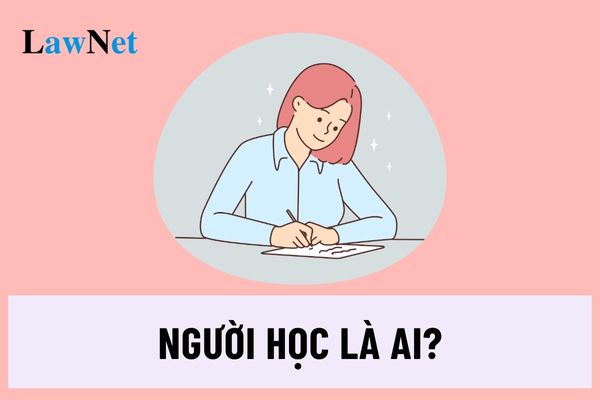Who is a learner according to the law in Vietnam? Are doctoral candidates at institutions providing doctoral education considered learners in Vietnam?
Who is a learner according to the law in Vietnam? Are doctoral candidates at institutions providing doctoral education considered learners in Vietnam?
Based on Article 80 of the Education Law 2019:
Learners
Learners are persons currently learning at educational institutions of the national educational system. Learners include:
1. Children at preschool education institutions;
2. Students at general education institutions, vocational training classes, vocational - continuing education centers, vocational education centers, vocational secondary schools and pre-university schools;
3. Students at colleges and universities;
4. Students at institutions providing master education;
5. Doctoral candidates at institutions providing doctoral education;
6. Learners of continuing educational programmes.
Learners in Vietnam are those who are studying at educational institutions within the national education system.
Doctoral candidates at institutions providing doctoral education are also considered learners.

Who is a learner according to the law in Vietnam? Are doctoral candidates at institutions providing doctoral education considered learners in Vietnam?
What are the duties of learners in Vietnam?
Based on Article 82 of the Education Law 2019, the duties of learners in Vietnam include:
- Studying and training according to the program, educational plan, and code of conduct of the educational institution.
- Respecting teachers, staff, and workers of the educational institution; uniting and helping each other in studying and training; following the rules, regulations, and policies of the educational institution; abiding by the laws.
- Participating in labor and social activities, environmental protection activities suitable to their age, health, and capacity.
- Preserving and protecting the property of the educational institution.
- Contributing to the building, protection, and promotion of the traditions of the educational institution.
What rights do learners in Vietnam have?
According to Article 83 of the Education Law 2019, the rights of learners in Vietnam include:
- Receiving education and studying to develop comprehensively and optimally their potential.
- Being respected; having equal opportunities for education and learning; developing talents, aptitudes, creativity, inventions; being fully informed about their study and training.
- Skipping grades, shortening the program duration, studying beyond the prescribed age, extending study time, repeating classes, and being facilitated to study educational programs as per legal provisions.
- Studying in a safe, healthy educational environment.
- Being granted diplomas, certificates, and confirmations after graduating from educational levels, training programs, and completing educational programs as specified.
- Participating in activities of associations and social organizations within the educational institution as per legal provisions.
- Using facilities, libraries, equipment, and means provided for educational, cultural, physical, and sport activities of the educational institution.
- Making suggestions directly or through their legal representatives to the educational institution on solutions for building and protecting the institution, as well as their rights and interests.
- Benefiting from state prioritization policies in recruitment into state agencies if they graduate with honors and have good ethics.
- Nominating representatives to participate in the school council as per regulations.
What are policies for learners in Vietnam?
According to Article 85 of the Education Law 2019, policies for learners in Vietnam include scholarships, social subsidies, tuition exemption/reduction, subsidies on tuition and living costs. To be specific:
- The state has a policy of providing scholarships to encourage students with outstanding academic results in specialized and talented schools as stipulated in Article 62 of the Education Law 2019 and learners with good or better academic and training results in vocational education institutions and higher education institutions; provides policy-based scholarships for pre-university students, students from boarding high schools for ethnic minorities, learners in vocational education institutions for war invalids, and persons with disabilities.
- The state provides allowances and tuition fee waivers or reductions for learners who are social policy beneficiaries, ethnic minorities in areas with extremely difficult socio-economic conditions, orphans, homeless children, persons with disabilities, and those from poor and near-poor households.
- The state encourages organizations and individuals to provide scholarships or allowances to learners as per legal regulations.
- Pedagogy students receive support for tuition fees and living expenses throughout their study period.
Individuals receiving support for tuition and living expenses after 2 years from graduation, if they do not work in the education sector or do not meet the required duration of work, must repay the supported amount from the state. The maximum repayment term is equal to the training duration.
Pedagogy students benefit from scholarships encouraging study, social allowances, and tuition fee waivers or reductions stipulated in Clauses 1 and 2 of Article 85 of the Education Law 2019.

